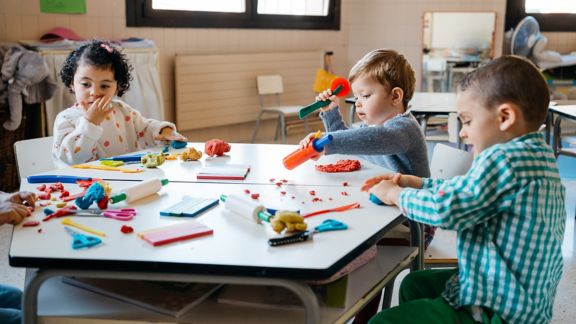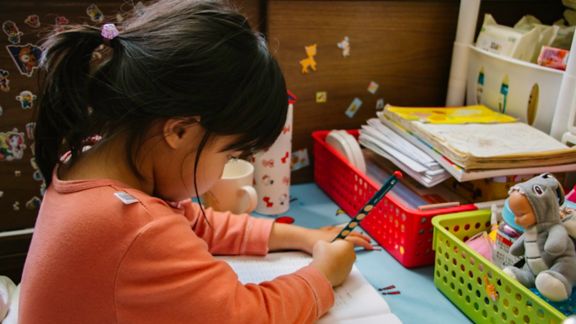Molly Gordon

Molly is a senior research scientist at NORC at the University of Chicago. She is a qualitative research expert focused on qualitative and mixed-methods studies in educational leadership, policy, and school improvement. She has extensive experience with managing qualitative data collection and analysis, and her field work includes conducting interviews, focus groups, observations, and document analysis. Molly utilizes both inductive and deductive techniques for analysis. She also has experience creating survey items and measures. Molly has over 20 years of experience conducting applied research that is relevant, meaningful, and timely for practitioners. She has presented her work to a variety of research, practice, and policy audiences. She is passionate about enhancing educational experiences and opportunities for all students.
As an applied researcher, part of Molly’s work has been to help educational organizations, departments, schools, and programs understand their successes, challenges, and impact to help them improve. Her work as a program evaluator, for example, has included building logic models, creating theories of action, assessing program and department practices and behaviors, identifying gaps, and determining the fit between professional development needs and program or department initiatives. Molly believes that information and insights derived from research are not impactful unless they are translated into accessible formats for policymakers and community stakeholders. Molly believes in building collaborative relationships with education partners, including district and school practitioners as well as city and state education leaders, policymakers, and leaders of nonprofit education organizations.
Her recent work has centered on leadership pipelines, how education policies are interpreted and enacted in practice, and how leaders influence school environments, build relationships and trust, and improve outcomes.
Prior to joining NORC, Molly worked at the UChicago Consortium on School Research where she served as co-PI on two studies investigating the long-term impacts of closing nearly 50 Chicago elementary schools in 2013 on families, school leaders, staff, and students. Molly led the qualitative portion of each study, which resulted in two policy- and practitioner-focused research reports as well as numerous presentations of the work. The studies were funded by the Spencer Foundation and the Chicago Community Trust.
Quick Links
Education
PhD
University of Minnesota (Twin Cities)
MA
University of Wisconsin (Madison)
BA
University of Wisconsin (Madison)
Project Contributions
Publications
-
City-Funded Preschool Helps Alleviate Shortage, Improves Child and Family Outcomes
NORC Article | August 23, 2024
-
“Tempe PRE: Insights into a New Publicly Funded Preschool Program”
Project Report | July 15, 2024
-
opens in new tabHead Start to Kindergarten: It Takes Two (Systems)
Research Brief | December 14, 2023
-
Research Reveals Opportunities for Easing the Transition to Kindergarten
NORC Article | December 11, 2023
-
"Understanding Cross-System Transitions from Head Start to Kindergarten: A Comparative Cross Case Study of Head Start and K-12 Partnerships"
Project Report | September 1, 2023
-
Systems-Level Strategies to Facilitate Kindergarten Transitions: Key Study Findings and Examples from Case Studies of Head Start & K-12 Partnerships
Research Brief | September 1, 2023
-
opens in new tab"Understanding Children’s Transitions from Head Start to Kindergarten: A Literature Review and Theory of Change."
Project Report | November 3, 2021
-
"City of Tempe Preschool Resource and Expansion"
Project Report | August 1, 2021






